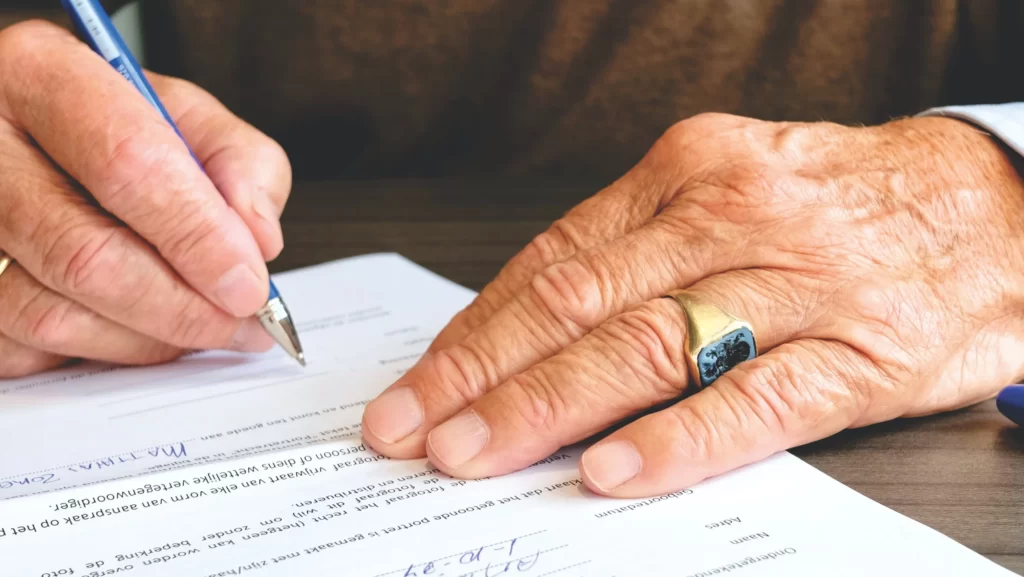Writing a Will in Australia is very significant because it is the only way through which we can ensure that all our assets and property are divided according to our intentions and wishes.
A Will gives us an opportunity to provide for our close friends and family. This helps us avoid unnecessary confusion and delays.
Writing a Will in Australia also prevents unnecessary conflicts from occurring, following the death of the Will-maker. Particularly, in case of complex estate and property, writing a Will in Australia is important.
Complex estates often involve assets which have a very high worth. In such cases, the family of the Will-maker may dispute with each other to claim higher portions of the estate if estate planning has not been done.
We should all consider writing a Will in Australia to avoid this situation wherein we clearly state our intentions about how our estates should be divided. While discussing this topic of writing a Will in Australia, the important aspects we need to consider include how we should go about making a Will, and what makes a Will legally binding.
Do I Really Need A Will?
Many people often underestimate the importance of making a Will. However, everyone with any estate under their name – be it simple or complex – needs a legally valid Will. This the only opportunity for a person to detail the intentions for their estate.
This an opportunity for a person to detail the intentions for their estate.
When people die without a valid Will in Australia, it is termed as dying intestate. Section 102 of the Succession Act (2006) defines “intestate.”
Such scenarios can be stressful, especially for the next of kin of the deceased. They will need to apply for Grant of Letters of Administration. Surviving relatives usually receive the deceased’s assets.
Generally, there is is an order in which the relatives receive portion of the estate. Distributing assets without a Will follow some strict rules. These rules and law may vary from state to state in Australia.
Generally in cases where a person has died intestate, the order of inheritance will be as follows:
- Spouse or de facto partner of deceased
- Children of deceased
- Parents
- Siblings
- Grandparents
- Uncles and aunts
- Cousins
However, this will not be distributed the way the deceased intended it to be. This is why drafting a legally valid Will is extremely important.

Writing A Will In Australia: What Do You Need?
Before we analyse the things we need for writing a Will in Australia, let’s understand some terms associated with Wills. A testator is the person writing a Will in Australia.
An executor of the estate is the person nominated by the testator to administer distribution of estate. Beneficiaries are those who receive some portion of the estate.
Before you begin with your estate planning, here are a few things you will need to get started.
- A complete and comprehensive lists of all assets you own, such as – bank accounts, real property, stocks, investments including foreign investments, superannuation etc;
- Full names, address and relevant contact information of all beneficiaries;
- Full names, address and relevant contact information of one executor, or two if needed; and
- Any specific wishes for funeral, if so then clearly stated wishes on how the funeral should be carried out. If funeral is pre-arranged, then full details of the funeral.
Writing A Will In Australia: What Steps To Follow?
Generally, the first thing people need to consider is whether they will begin writing a Will using DIY online kits, or by seeking help from solicitors. While online kits are good for simple estates, for more complex estate planning, you will require solicitors who can help you with all legal procedures.
One of the major setbacks of using online kits is that there are high chances of such Wills to fail to comply with standards which make them legally valid. Moreover, each jurisdiction in Australia has different rules and laws. A lawyer will know exactly which rules and laws apply to your particular matter and estate, which is why it is ideal to seek guidance from an estate planning solicitor.
People often wonder when they should prepare the document. Few situations when you can start writing your Will include if you:
- Bought or started a new business;
- Just turned 18 years old;
- Are planning to remarry, re-married;
- Recently got a divorce or are separating;
- Entered into a de facto relationship
“How are Wills made legally binding?” is an important consideration under this topic. Firstly, it is important that the Will is:
- In writing;
- Properly signed by the testator; and
- Witnessed by two neutral parties (cannot be the beneficiaries or spouse of the testator).
Secondly, the testator must also have testamentary capacity at the time. This is the mental ability of the testator to know and understand the effect of writing a Will, and the nature and extent of their estate.

JB Solicitors’ Legal Guidance For Your Estate Planning Needs
Estate planning is important to avoid disagreements and conflicts in the future. Moreover, estate planning ensures that a person can help their close ones and provide for them even after the person has passed away.
Contrary to what people believe, estate planning does not only involve drafting a Will. There are other legal processes involved, such as appointing a Power of Attorney. A Power of Attorney is usually someone close to you who you trust as you appoint them to act on your behalf.
Additionally, certain complications like tax implications may arise. A solicitor will meet with you to find and discuss all potential scenarios so that you can minimise tax implications.
At JB Solicitors, our estate planning solicitors are committed to providing the best service for each of you to satisfactorily finalise your estate planning. Our lawyers value transparency, and thereby also offer fixed-fee prices which give you a clear sense of your legal costs.
Contact our friendly team of experts to guide you.
